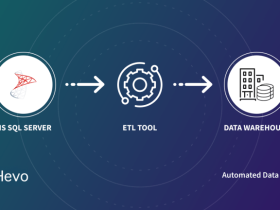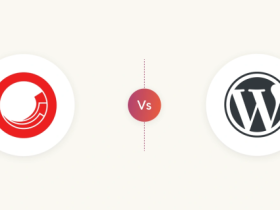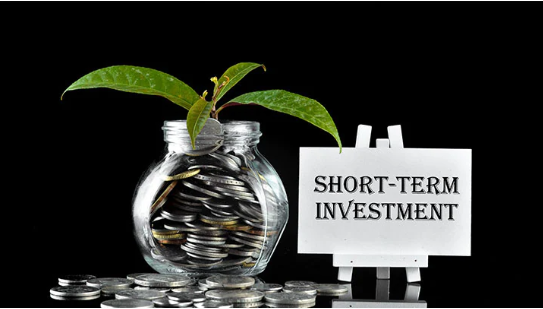When it comes to securing your financial future, many of us only think of long-term strategies. But what if your goals are closer in sight? A dream vacation, building an emergency fund, or even saving for a child’s school admission: all these require a reliable approach that delivers returns within a short span of time. This is where short-term investment plans come into the picture. These options strike a perfect balance between liquidity, safety, and returns, ensuring that your money works for you even within a brief timeline.
Why Short-Term Investments Matter
Unlike long-term avenues that tie up funds for 10–15 years, short-term investment plans typically span from a few months to three years. They allow you to remain flexible while offering stability and growth. Whether you are a first-time investor or someone balancing multiple financial goals, a short-term strategy ensures you don’t compromise liquidity while still growing your wealth.
Now let’s explore the top four options that can align with your financial timeline in 2025.
Equity Linked Savings Scheme (ELSS) – Growth with Tax Benefits
ELSS is unique because it doubles up as both a tax-saving tool and an investment avenue. With a minimum lock-in of three years, it is still considered short compared to other equity-linked products.
- Eligible for deductions under Section 80C of the Income Tax Act.
- Market-linked growth potential, often higher than traditional deposits.
- Encourages investors to experience equity markets while reducing taxable income.
Debt Mutual Funds – Balancing Stability and Growth
For those willing to step slightly beyond traditional bank products, Debt Mutual Funds are an attractive choice. These funds invest in bonds, treasury bills, and corporate deposits, offering moderate returns while keeping risk relatively low.
- Higher liquidity compared to fixed deposits.
- Returns can be slightly better than traditional options, depending on the market.
- Suitable for short-term horizons like 1–3 years.
Debt funds work best for investors who want stability with a touch of market-linked growth. They’re also a good way to diversify your short-term portfolio without exposing yourself to high volatility.
Fixed Deposits (FDs) – Safety First
One of the most trusted choices, Fixed Deposits are ideal for conservative investors who value guaranteed returns.
- Offers a fixed interest rate, ensuring predictable earnings.
- Tenure ranges from 7 days to 10 years, making them flexible even for short goals.
- Senior citizens benefit from higher interest rates.
- Premature withdrawal is allowed, though a penalty applies.
For anyone who wants peace of mind with minimal risk, FDs remain the backbone of any savings plan. They may not promise sky-high returns, but their security makes them dependable for short-term needs.
Recurring Deposits (RDs) – Discipline in Savings
If you want to cultivate the habit of regular saving, RDs are an excellent option. By depositing a fixed amount every month, you gradually build a sizable corpus over time.
- Ideal for salaried individuals or families with steady monthly income.
- Flexible tenure from 6 months to 10 years.
- Guaranteed returns, much like FDs.
For example, a person who deposits ₹5,000 every month for 2 years at an average interest rate of 6.5% would end up with around ₹1,28,000 at maturity, demonstrating how consistent small steps can build a strong savings plan.
A Narrative Example on Tax Benefits
Imagine a young professional named Aarav, who earns ₹8,00,000 annually. Without any tax-saving investments, his taxable income remains the same, placing a higher burden on his finances. Now, if Aarav had invested ₹1,50,000 in ELSS under Section 80C, his taxable income would reduce to ₹6,50,000. Not only does he save on taxes, but his money also grows through equity exposure. Compare this with skipping ELSS, and the difference could mean paying thousands more in taxes every year.
This scenario highlights why including a tax-efficient option in your short-term investment plans can significantly impact your take-home wealth.
How to Choose the Right Option
Selecting the best choice depends on your financial goals and risk tolerance. Here’s a quick guide:
- For capital preservation, opt for Fixed Deposits or Treasury Bills.
- For disciplined savings, choose Recurring Deposits.
- For moderate growth with liquidity, explore Debt Mutual Funds.
- For tax efficiency and higher returns, consider ELSS.
It’s also wise to diversify your investments. Combining a secure FD with a growth-oriented ELSS, for example, allows you to enjoy both safety and returns.
The Bigger Picture
Short-term goals are just as important as long-term ones. They keep you motivated, provide financial stability, and ensure you never have to compromise on important life milestones. Whether it’s building a travel fund, setting aside money for emergencies, or planning for a near-term expense, these instruments ensure your money doesn’t just sit idle.
Conclusion – Smart Choices for a Secure Tomorrow
Short-term investments may look small compared to the grandeur of long-term wealth creation, but they are powerful tools for financial balance. By aligning your goals with the right option, you ensure stability, growth, and even tax efficiency.
Think of these as stepping stones that bridge today’s efforts with tomorrow’s needs. And when managed within a reliable savings plan, they not only protect your hard-earned money but also make it grow.
For those looking to secure both near-term goals and long-term aspirations with trusted expertise, brands like Aviva India offer comprehensive solutions tailored to different timelines. Because every financial milestone, whether short or long, deserves a smart strategy.








































Leave a Reply